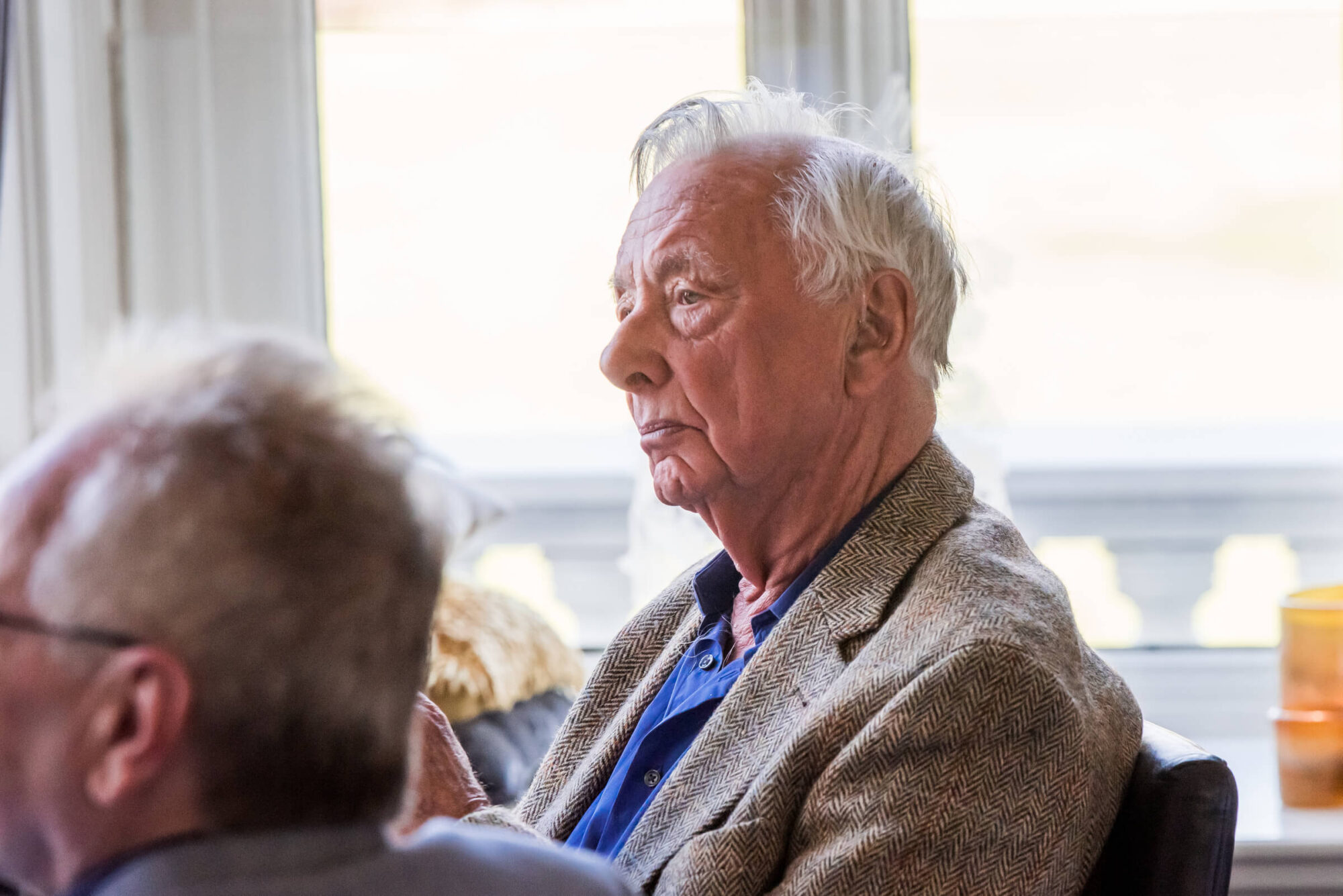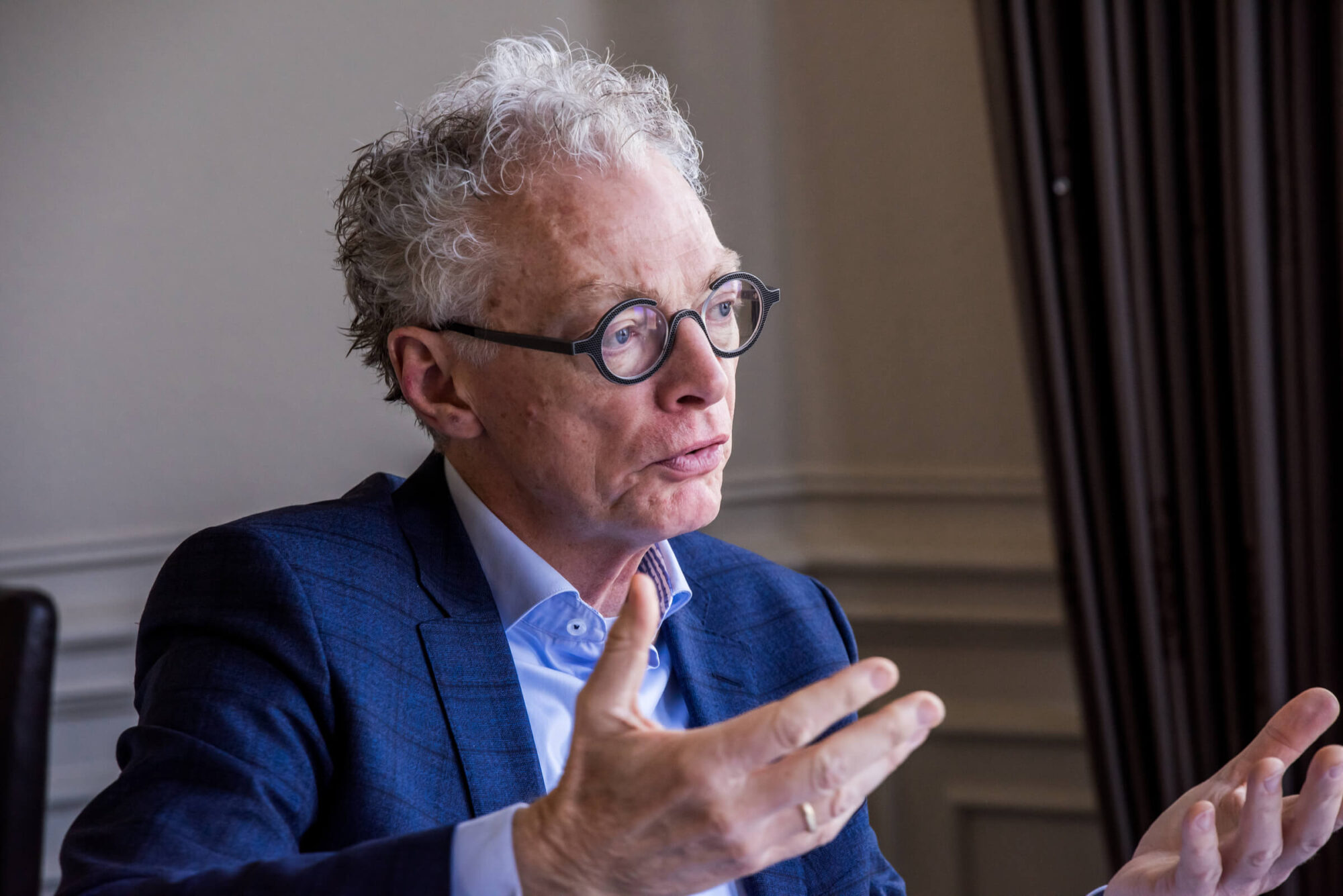NOM began as a start-up in recessionary times. No one knew exactly how to get things going. Arie van der Hek confesses that in his day he could still improvise a little. Nowadays, however, he would be judged harshly on targets. Siem Jansen: ,,The accountant even checks your results.''
An A4 sheet is drawn up every year that states what NOM must do in numbers and amounts in the areas of investment, innovation and internationalization. Provinces and the Ministry of EZK monitor compliance. Siem Jansen: ,,If NOM reports in the annual report that there have been ten acquisitions, they are not made up because the accountant checks it.'' Dina Boonstra adds: ,,And once every five years an external agency evaluates our results.''
Ruud Bouwman, finance man of the very first board, hears it with amazement. ''That approach is much tougher than I expected. It is progress, although of course there is the danger that you will fall far short of your goals.'' Van der Hek finds the supervision oddly arranged: ''You already have shareholders and commissioners for that sort of thing, don't you?''
Position NOM is so unchallenged.
Siem Jansen
Siem Jansen understands Van der Hek's comment. ''The current procedure is also a piece of additional bureaucracy,'' he agrees. ''That is the disadvantage of the advantage. But NOM's position is uncontroversial this way.''
Upon taking office, Arie van der Hek sees that the participation company in particular, by introducing the revolving fund principle, has to take a different course. ''It is a new reality,'' Van der Hek says,
The SB supervised and there was the annual audit by the government auditors.
Much later, after I left NOM, there was a different regime.'' The funding regime was radically changed. The capital made available had to be maintained by NOM with its participation company (the revolving fund principle). The mission of "strengthening the economic structure" remained unchanged.
Visiting Wim Kok
A phone call from a minister making demands is therefore no longer appropriate in this day and age. Siem Jansen was once told by the minister that he had to invest in Aldel, to which he replied that NOM makes its own considerations. And that was the end of it. Van der Hek once had to visit Wim Kok, then Minister of Finance, who demanded a dividend of 4 million guilders," he says.
"I said, Wim, that money is earned in the Northern Netherlands economy, wouldn't it be obvious to use this money for that? Wim wanted his four million. End of story.
Frits Migchelbrink also still had to deal with that one shareholder. ,,Then I was told to sell something to Friesland Bank or Rabo. I would breathe in and out. Once a year a civil servant would come by, I would treat him nicely and for the rest I had nothing to do with EZ.
Every mayor was engaged in acquisition.
Ruud Bouwman
In 1974 NOM had the almost hopeless task of boosting the economy in the northern Netherlands, while at the same time dancing to the tune of 'The Hague'. With blinkers on, the regional administrators looked primarily at the proceeds for their own province. There was seldom a northern interest, it was fragmentation that was set in motion.
Dina Boonstra: ,,But you see that even now, when it comes to innovation, for example. That is a task for the NOM, but there are a thousand and one parties involved. I am not saying it is not good, but it is fragmented.'' Ruud Bouwman then has another example from his time. ''Every mayor was involved in acquisition.'' In unison it sounds: ''That's not possible.''
Both Siem Jansen and Frits Migchelbrink experienced that deputies often asked to invest in companies "in which it was not wise to invest" (Jansen). During his directorship, Migchelbrink regularly complained about the interference of deputies. ''Here there was the idea that you could steer things like that,'' he says, ''and in South Holland there was no such idea. And that made sense because in South Holland the economy was more or less doing well on its own and here you had to crank something up. It's just desperately difficult to do anything from the government.''
Now the focus is on innovation. Jansen says it is now more about what you can do for companies in a joint chain: ''Innovation here is focused on an economic regional product. Making new things and looking for new markets.''
In South Holland, the economy took off by itself.
Frits Migchelbrink
Companies often don't know about each other
According to Migchelbrink, that trajectory began 20 years ago - and perhaps even earlier. ''This kind of process takes a very long time.'' And he suddenly remembers the market sector committees. ''Geez,'' he echoes, ''Wientjes and ISP you had back then. Those guys said to the companies: Go and really look at what you do, then you can play a role if you tell each other what you see. Companies often don't know about each other what they are doing.''
Thus regional cooperation arose and developments shifted from large to small, Migchelbrink says. ''It was a good development, the only question is whether it should be done by a government institution.''
Still, market forces aren't everything either. And he cites market forces in health care. Migchelbrink: ''You have to think about how to make yourself useful, but governments have to allow you to do that. Then it's also about the tasks you perform, because the government is not strong in that direction either.'' Arie van der Hek responds, "I see that differently. In my time, the participation company and the development arm of the NOM were able to give substance completely on their own to the mission established by the government, that the NOM contributes to the strengthening of the economic structure in the northern Netherlands."

NOM has changed, but so have the directors
Migchelbrink notes that not only NOM has changed, but also its directors. ''The mode of operation is different,'' he says. ''You (points to Van der Hek) come from the days of the directing sideline, from the side was said what had to be done. They (points to Jansen and Boonstra) are in a time when you listen to people. It's no longer having things imposed from above, but informing where the work is. And then by trial and error find a place in the world.''
And so NOM has evolved from a somewhat docile operating body to an integrated player, much more the accepted driver of joint developments.
This article is part of a series of articles following a meeting between former NOM directors and current director Dina Boonstra. They look back on 50 years of NOM and philosophize about the future.
